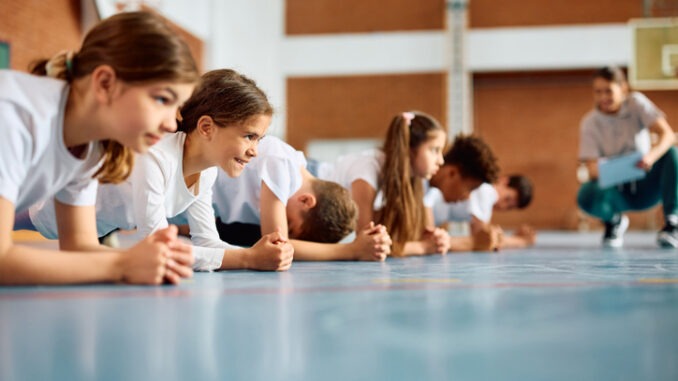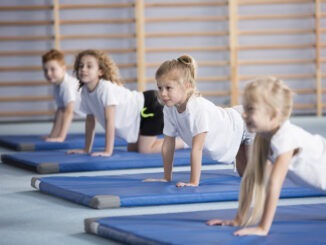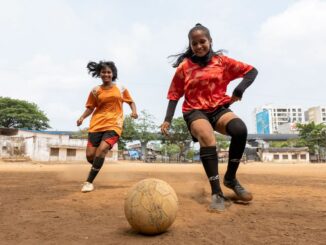As reported by DfE, schools to receive guidance on ensuring two hours of PE per week and equal sports access for all pupils ahead of a sports-packed summer
Brand new guidance published today will help inspire the next generation of British athletes by supporting schools to boost high-quality PE and school sport. This will create the foundations for active healthy lifestyles and help children follow in the footsteps of the sporting heroes they’ll be watching this summer at the Olympics, Paralympics and Euro 2024 football tournament. The guidance, which will be published in the run-up to the Women’s Six Nations Championship, builds on the government’s commitment to improve the quality of PE and sport for all pupils.
As set out in the updated School Sport and Activity Action Plan published last year, which delivered on promises made by the Prime Minister and Education Secretary to the Lionesses, the guidance will support schools to offer equal sporting opportunities for girls and boys, alongside a minimum of 2 hours of PE per week, helping to build a brighter future for our children.
This is just one of the ways the government is helping schools give young people the best start in life, regardless of background. The plan is working as school standards continue to rise with 90% of schools now judged to be Good or Outstanding last year, up from 68% in 2010.
Drawing on exemplary case studies from across the country, the new guidance provides inspiration for schools to offer all pupils inclusive and high-quality PE, sport and physical activity. It demonstrates how schools can remove barriers to participation in PE by taking the specific needs of pupils into account, embedding plans into the school’s strategy, and building relationships with local and national sport bodies.
Using the new guidance will help schools to meet both the ambitions of the national curriculum and the Chief Medical Officers’ physical activity guidelines, which recommends that children should take part in moderate to vigorous physical activity for an average of 60 minutes a day.
The Prime Minister Rishi Sunak said:
Sport is profoundly important – it is good for our physical health and good for our souls.
That is why we are ensuring that girls and boys have the same opportunity to access school sport and can benefit from a minimum of at least two hours of P.E a week.
Taken together with the £600 million we are investing in school sports, this new approach will empower students to improve their physical and mental wellbeing and learn important skills like teamwork and leadership
Education Secretary Gillian Keegan said:
As the Women’s Six Nations kicks off, I’m delighted that we’re taking the next step to support schools to help boys and girls follow their sporting role models. I know there are so many benefits to being active, not just in terms of physical health but also to build wellbeing and positive mental health.
It is inspiring to see the innovative ways that schools around the country are offering every child access to quality sporting opportunities, regardless of their background, and this guidance will help even more schools to instil a lifelong passion for sport and fitness in every young person.
Examples cited in the guidance include Shoreham Academy, where PE staff worked closely with their Inclusion and Learning Support team to make sure that pupils with special education needs and disabilities (SEND) were able to take part in PE. By purchasing new equipment for accessible activities like Boccia and Goalball, pupils with disabilities such as Muscular Dystrophy and Downs Syndrome have been able to participate fully in school sports.
Key to the government’s vision for PE in schools is ensuring boys and girls have the same opportunities for school sport. The new guidance spotlights schools who are leading the way to ensure that whether you are a girl or a boy, this is not a barrier to participation in sport.
From Telford Langley school, which worked with the Rugby Football Union to offer a regular after-school rugby club for girls, to The Alexandra Park School which trained groups of girls to lead girls only football sessions, schools across the country are taking innovative approaches to ensure that girls feel empowered to engage in school sports.
The guidance shows how some schools which offer excellent PE and sports provision have seen improvements to pupil behaviour, confidence and wellbeing, while a strong extra-curricular sports offer at school can develop children’s sense of community and belonging. For example, Wright Robinson College introduced a series of casual, non-competitive sports clubs which run during the school day, creating an inclusive environment which develops character and boosts mental health.
The expectation will be that schools will use these case studies and examples to drive improvements in their own school sport provision and ensure they are offering equal opportunities for girls and boys.





Be the first to comment